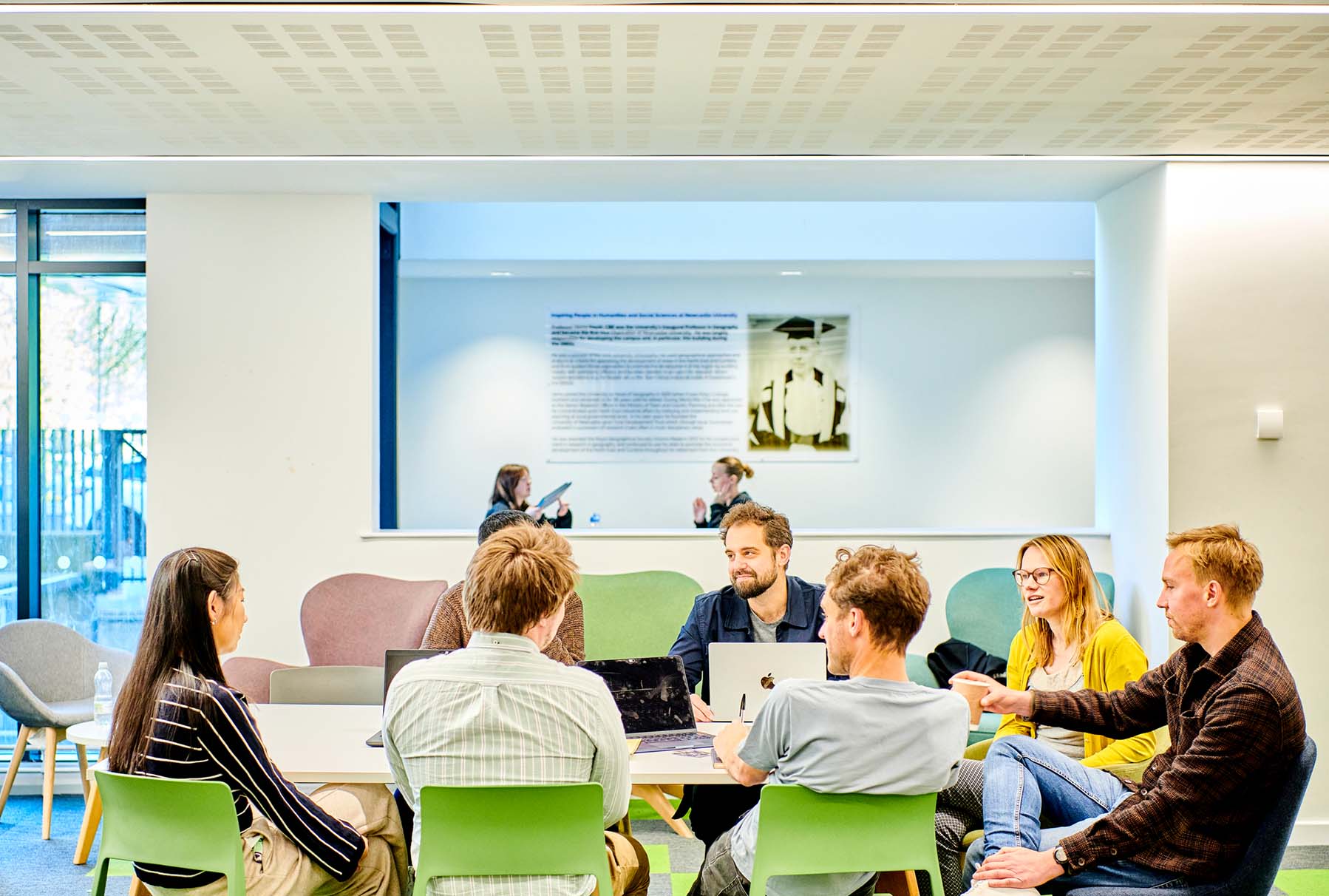Staff Profile
Dr Theodoridou joined the School of Engineering and the Hub for Biotechnology in the Built Environment as a Newcastle University Academic Track (NUAcT) Fellow in March 2020. During her NUAcT fellowship, she focuses on Biological Self-healing for Sustainable Building and Smart Heritage Conservation and her vision is to develop a world leading team where novel biotechnological processes are developed and explored for sustainable and smart heritage conservation.
She holds a PhD in Conservation Science from the University of Bologna, Italy, which was funded by the EU-Marie Curie Actions, and a degree in Civil Engineering from the Aristotle University of Thessaloniki, Greece. She has worked as a research and teaching fellow in Italy, Hungary and Cyprus, with scientific contributions to the design and development of novel construction materials and the innovative application of micro/non-destructive techniques for building materials’ characterisation. Between 2018-2020, she worked as Marie Sklodowska Curie individual fellow at Cardiff University on self-healing geological materials and structures.
She has been awarded three individual research fellowships (NUAcT, MSCA-IF, University of Cyprus), one early-stage research fellowship (ITN-Marie Curie), seven personal mobility grants (Cardiff University, MCAA) and has participated in interdisciplinary national and international research projects that have attracted over 15M (e.g. HBBE, RM4L, PCPlasters, EPISCON, New Infrastructure). She has widely communicated her research in top quality peer-reviewed journals and other dissemination activities in Europe, America and Asia such as international conferences (>55) and invited lectures (>20). She has co-organised 28 conferences/conference sessions/seminars/workshops, co-edited two books and two special publications and co-supervised five PhD and 13 Master’s students. She has strong experience in outreach activities (>20 e.g. Science Café-BBC, European Researchers Nights, CORDIS, Forbes) aiming at engaging with the public and policymakers. She has been involved with local and international organisations (e.g. Cadw, UNDP Cyprus, Cyprus department of Antiquities) for increasing the impact of her research. She is a Newcastle University Policy Academy Fellow. In 2019, she was selected for joining the Welsh Crucible training programme for Future Leaders in Wales and was invited to speak at the launch event of the HEFQW Research and Innovation Vision representing the excellence pillar. She is a member of the Heritage NUCoRE executive team, four international RILEM technical committees (BEC, MAE, 271-ASC:completed, 277-LHS:completed) focusing on testing materials durability and properties for repairing heritage structures and ICOMOS ‘International Scientific Committee for Stone’. She is a chartered engineer in Greece and Cyprus. She has dedicated herself to ensure equality and diversity among scientists. Since 2018, she has been the Chair of the Marie Curie Alumni Association (MCAA) Genders, Equity, Diversity & Inclusion Working Group. She envisions the engagement of more people to address fair opportunities in career development in research, as well as a healthy work-life balance, despite any individual characteristic. Apart from managing a diverse and large WG, she has led the organisation of various activities (e.g. seminars, workshops/conference sessions), co-organised the production of video series and co-authored statement and open opinion documents. At the HBBE, she has taken over the EDI lead role of the HBBE People subcommittee.
Dr Theodoridou's research focuses on bridging traditional and modern technologies for sustainable conservation and new construction, further described by the following list of interests:
(i) Self-healing geological construction materials & structures.
(ii) Design and Development of novel construction materials -> contemporary and historic architecture
(iii) Innovative application of non/micro-destructive techniques for the characterisation of building materials
(iv) Characterisation and Optimisation of building technologies, heritage materials and structures
Her research is highly interdisciplinary, including multi-disciplinary, cross-disciplinary and academia/industry projects. She is also highly involved in equity, diversity and inclusion activities for promoting fair opportunities in research and higher education despite any individual characteristic.
Her NUAcT Fellowship entitled 'Biological Self-healing for Sustainable Building and Smart Heritage Conservation' aims at:
•Developing weathering resistant biological self-healing technologies
•coupling with other advanced technologies with a particular interest in novel biotechnologies (see ongoing research @ the Hub for Biotechnology in the Built Environment)
•engaging with external partners, generate impact
I am interested in supervising students in the areas of:
(i) Self-healing construction materials & structures
(ii) Design and Development of novel construction materials -> contemporary and historic architecture
(iii) Innovative application of non/micro-destructive techniques for the characterisation of building materials
(iv) Characterisation and Optimisation of building technologies, heritage materials and structures
(v) Biotechnology and Biodesign in the built environment
-
Articles
- Brandic Lipinska M, Maurer C, Cadogan D, Head J, Dade-Robertson M, Paulino-Lima IG, Liu C, Morrow R, Senesky DG, Theodoridou M, Rheinstadter MC, Zhang M, Rothschild LJ. Biological growth as an alternative approach to on and off-Earth construction. Frontiers in Built Environment 2022, 8, 965145.
